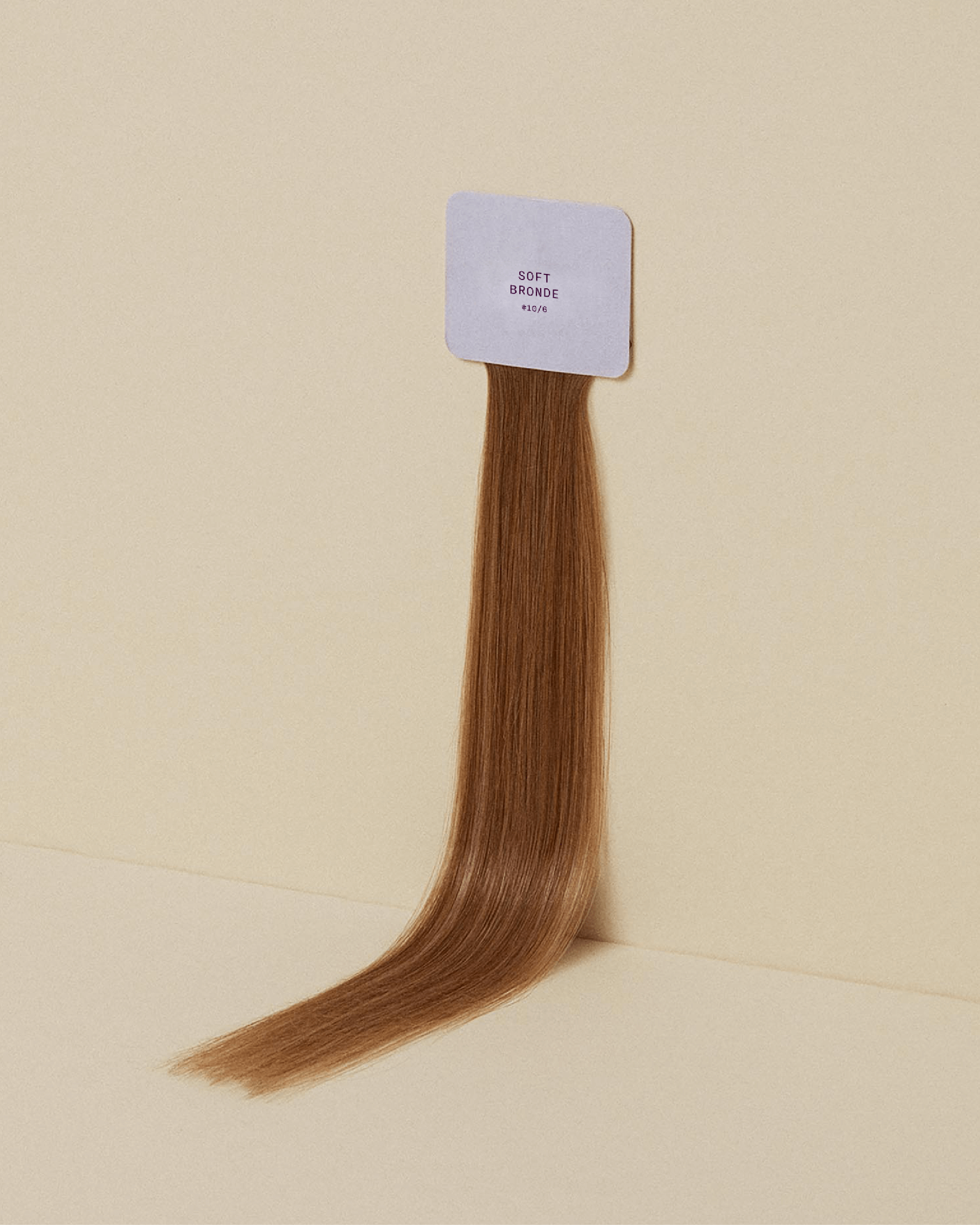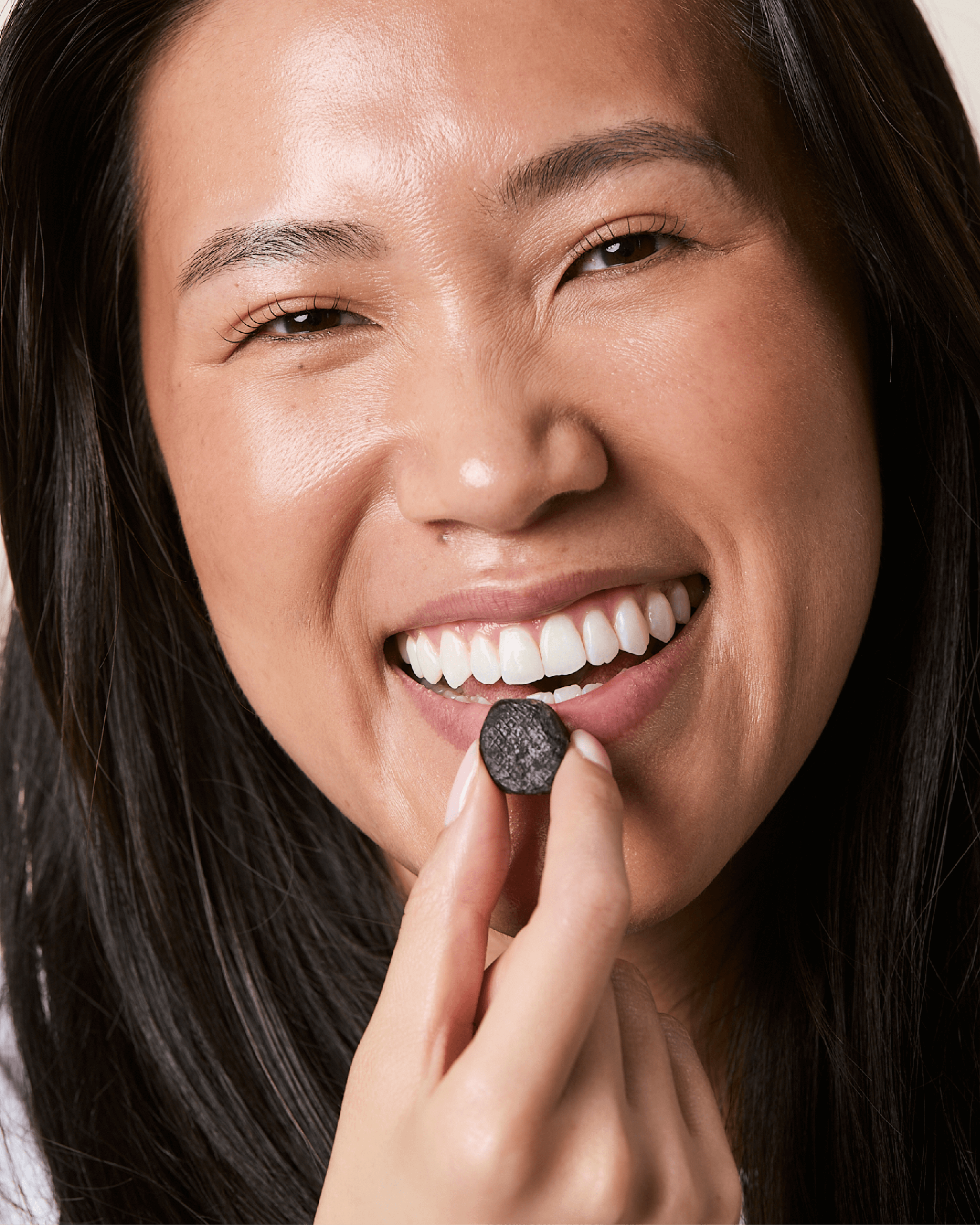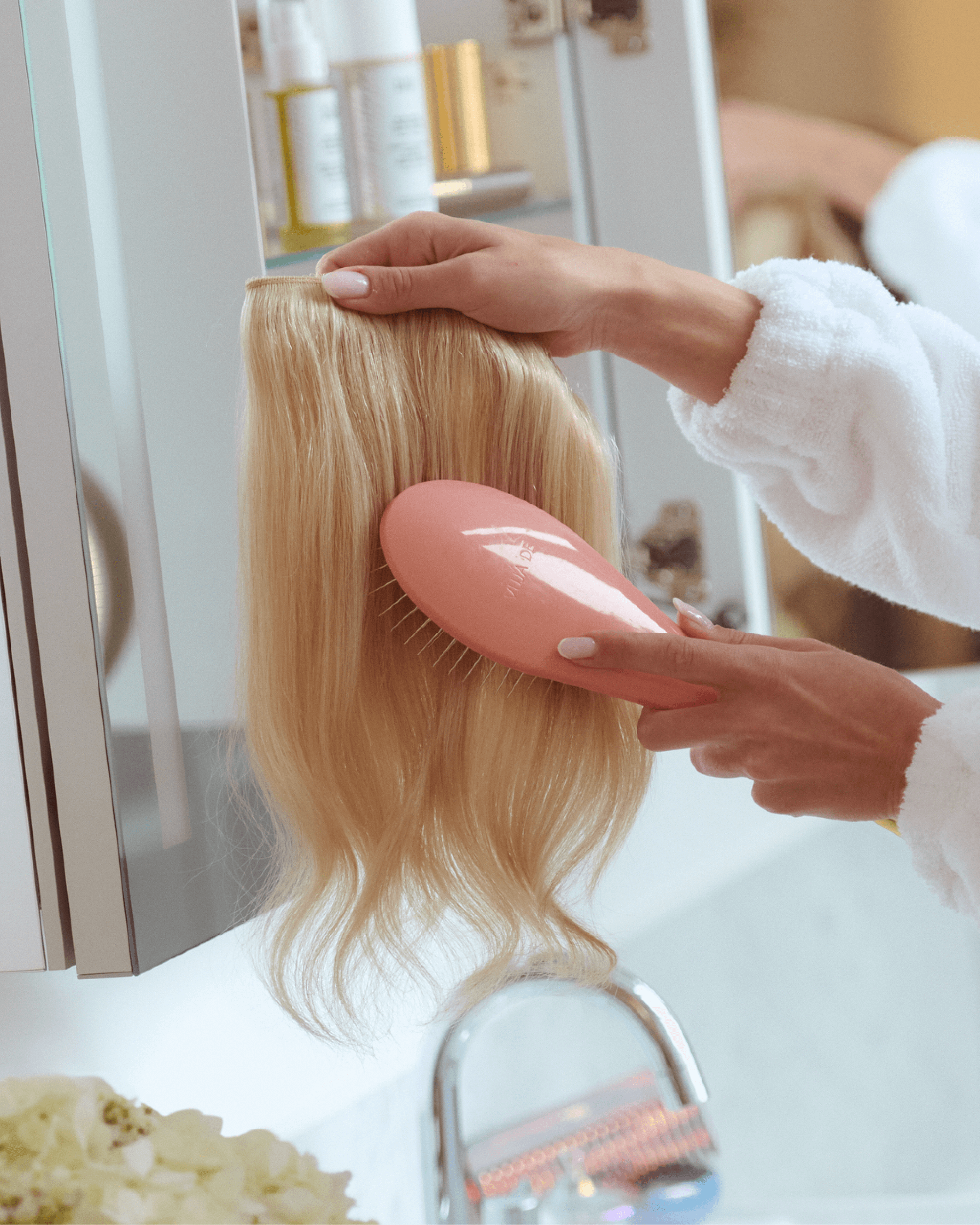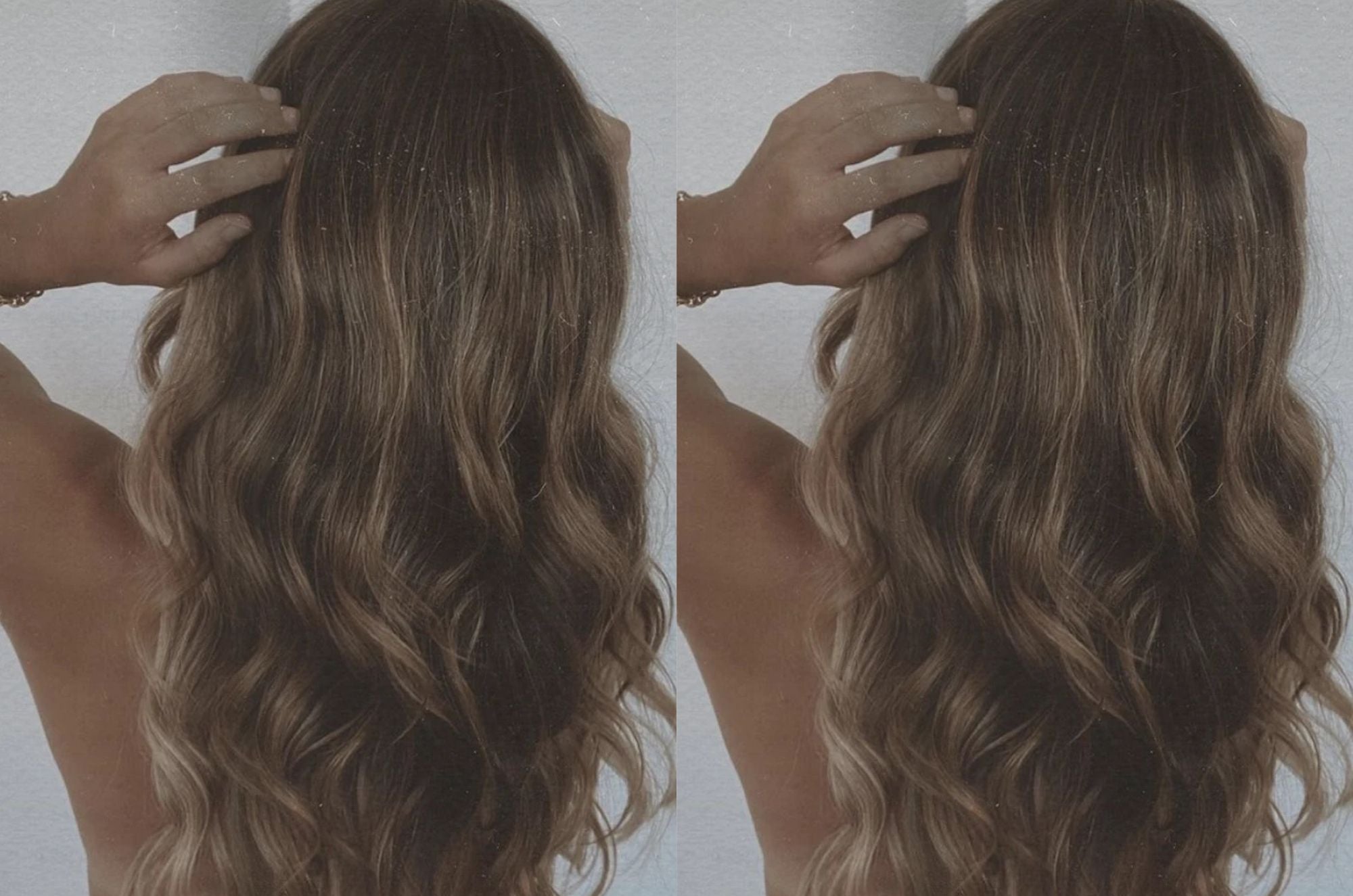When you hear bacteria, your initial reaction is probably GROSS.
But, did you know some bacteria is actually good for you?
Especially scalp bacteria.
Yep, that's right.
Certain scalp bacteria are not just harmless but are also imperative to a healthy scalp and proper hair growth.
Let's talk about which bacteria you need for long, luscious, healthy hair.
Also read: Why Your Scalp Is Sore Or Feels Like It's Burning

What is scalp bacteria?
Scalp bacteria are the thousands of micro-organisms that live in your hair and on your scalp.
And:
Just like your gut bacteria, some are naturally occurring and help with hair growth.
But...
Not all hair bacteria are created equal.
Good VS Bad Scalp Bacteria:
Lots of hair care focuses on cleaning and hydrating your locks.
Which is great, right?
But
Have you ever thought about protecting your scalps natural bacteria?
Or...
...as the science dudes call it, scalp microbiome.
Now you're probably wondering:
'What is the scalp microbiome?'
Let me explain:
The scalp microbiome is is a form of bacteria that naturally occurs in your hair and scalp.
In fact:
Bacteria covers your entire body, inside and out.
Even within your cells!
This is not just good, but necessary.
The human body has developed over many thousands of years in symbiosis with our environment.
That includes these little critters.
But here's the thing:
The scalp microbiome comprises both good and bad bacteria.
So
Keeping the balance between the good and bad scalp bacteria is super important.
Popular article: DIY Deep Conditioning Treatment At Home For Dry Hair
What Is Good Scalp Bacteria:
Maintaining a healthy scalp microbiome balance is vital for hair growth.
So
Let's talk about good scalp bacteria and learn:
- Why it's good scalp bacteria is important.
- How good scalp bacteria helps hair growth.
- How we can support its development.
Ready?
How does scalp bacteria help hair growth?
Scalp Microbiome keeps your natural hair growth cycle moving.
If your hair growth cycle stops...
Then new hair stops growing, but old hair keeps falling out.
Which leads to hair thinning.
That says it all.
But
Good scalp bacteria also maintains your scalp PH balance.
Which reduces chance for inflammation.
And...
It protects you from bad scalp bacteria, which can cause painful scalp infections, dandruff, and hair loss or hair thinning.
(More on that soon)
So essentially;
Ensuring your healthy scalp bacteria continues to outnumber the bad is the root of all hair care.
How can I improve my scalp bacteria?
Good question.
And fortunately there are plenty of ways to improve your scalp microbiome.
These include:
- Special shampoos.
- Scalp microbiome treatments.
- Scalp scrubs.
- Natural hair care products.
- And maintaining good hair hygiene.
But keep in mind;
It's all about restoring the balance between good and bad bacteria.
So...
If you've found yourself with a flaky scalp or lacklustre locks, you're probably suffering from a bacterial imbalance!
What to do?
A proper hair care regime is vital to restoring this.
But...
It doesn't need to be an elaborate nightly 12 step routine.
Like anything in life:
Simple is good.
Here are a few ways to improve your scalp bacteria:
1. Keep it clean:
Regularly and thoroughly washing your hair using good quality products is one sure-fire way to keep your scalp microbiome in tip-top shape.
But
'Good quality products' must be emphasised.
You know what this means:
No more toxic supermarket products.
There's a new wave of innovative scalp bacteria-friendly products coming into the market right now.
So, how often should I wash my hair?
First of all, remember:
Scalp bacteria are attracted to your scalp for a reason...
...They like to feed on the oil in your hair/scalp.
That means;
Washing your hair often is not ideal.
If you can get away with washing your hair once a week, then do that.
Twice per week maximum.
This will keep your scalp and hair clean without stripping away your natural oils or good bacteria.
2. Don't flake:
One scalp bacteria symptom is dandruff.
This is because;
The condition causes your scalp to dehydrate and become flaky.
So
It's important to use the right products to fight it.
And a decent quality dandruff shampoo will do just that.
But...
Remember what I said above:
'Good quality products' only.
Pro tip:
Applying a hydrating mask once per week will help reduce scalp inflammation too.
3. Ex-oooh-la-la:
You might not be familiar with scalp exfoliating.
But you should be.
Why?
Because this is one of the best things you can do to restore and protect your scalp microbiome.
And...
While it's important to keep some of your locke's natural oils, it's equally important to scrub away the excess to keep your cuticles clean.
Enter scalp scrub.
Here's the deal:
Exfoliating your scalp once or twice per week will eliminate dead skin, dirt, built-up product and excess sebum (oil).
All of which create a breeding ground for nasty bacterias.
And the removal of which, creates a breeding ground for good bacteria.
Win-win!
This will leave you with not just the right amount of good bacteria...
...but thicker and healthier hair overall.
Read: How Scalp Exfoliating can Solve Your Hair Drama
Bad Scalp Bacteria:
Problems occur when the harmful bacteria in the microbiome outnumber the good scalp bacteria.
And...
It's not even necessarily that one type of bacteria is better than another.
More so that;
Your microbiome is a delicate balance of many different strains of bacteria.
And...
It's this balance that needs to be managed carefully.
If the balance is toppled?
This throws the scalp PH balance out of whack, and can cause a hoard of hair issues, including:
- Skin/scalp infection
- Hair loss
- Hair thinning
- Dandruff
- Dry scalp
- Oily scalp
- Other skin diseases
- Etc.
It's important to mention as well that everyone's scalp microbiome is different.
This means:
Your scalp may respond differently to certain treatments than mine.
So although one person may benefit from one form of treatment, that same treatment may not work for you.
There's no one-size-fits-all.
And therefore...
There's some experimenting required to find what works for you.
What causes harmful bacteria on the scalp?
The most common causes of bad scalp bacteria are:
- Sulphates
- Silicone
- Synthetic fragrances
- Excess oils
- Poor scalp and hair hygiene
But bad scalp bacteria, bacterial overgrowth or imbalance in the microbiome can also be caused by overwashing, destruction of your good bacteria, and more.
There is no 'one cause'.
Also read: 5 Harmful or Toxic Ingredients In Shampoo
Can bad scalp bacteria be affected by what we eat?
Absolutely.
Think about this:
If you eat something that contains toxins.
Then your body absorbs those toxins along with the nutrients.
And when your body produces hair, sebum or skin cells, etc. then those toxins are included in the building blocks of that hair/sebum/skin cells.
And...
If we've learned anything from the well-documented science on gut health:
We know that bad bacteria is drawn to many of the things that are toxic to us (just look at the bacteria in feces).
Therefore:
It's without doubt that what we eat has a massive effect on our scalp microbiome (and the bacteria of the rest of our bodies).
Is this perhaps why people who eat healthy also tend to have better hair and better skin?
Can bacteria on the scalp cause hair loss?
Harmful scalp bacteria causes hair loss.
This is when:
The hair follicle becomes blocked by a bacterial or fungal infection, healthy strands cannot regrow.
The natural hair growth cycle stops. Except the shedding stage continues!
So
You'll keep shedding hair without regrowing new strands.
And...
The bacteria can cause painful itching and burning on the scalp.
Which may lead to you scratching away your stands.
And if that wasn't bad enough...
Bacteria on the scalp also causes dry and brittle hair.
Which makes your lockes more prone to breakage.
Not only does it hinder hair growth, but:
A build-up of bad bacteria also causes infections.
The most common conditions caused by harmful hair bacterias are:
- Hair bacteria fungi; fungal growth in your scalp and hair follicles.
- Folliculitis; inflammation and infection of the scalp.
- Seborrheic dermatitis; infection causing red patches and oily secretion from your scalp.
Scalp bacteria symptoms:
The symptoms of bacterial infections on the scalp will vary depending on the specific condition.
But they all share some common signs.
These are:
- Hair loss
- Dry or flaky scalp
- Itching or burning scalp
- Greasy hair
- Dull Hair.
Popular: 5 Simple Tips For Growing Your Hair in 3 Months or Less
How to remove bacteria from scalp?
Luckily, there are many scalp bacterial infection treatments!
But keep in mind:
The aim of any holistic scalp bacteria treatment should remove bad bacteria, while maintaining good bacteria, and restoring overall scalp microbiome.
And...
Some more severe scalp infections might require medical attention.
But there are a lot of things you can do at home.
Some DIY ways to treat scalp bacteria are:
-
Apple cider vinegar rinse; in the shower.
-
Tea Tree oil; applied to your scalp overnight.
-
Lemongrass mask, applied for 30 minutes.
-
Peppermint oil; applied to your scalp overnight.
-
Oatmeal or coffee scrub; in the shower.
Summary on Scalp Bacteria:
The purpose of writing this article is not to scare you.
But to inform you.
Of how many hair or scalp issues may in fact be related to bad scalp bacteria.
In fact:
Did you know that scalp infections and inflammation is as common (if not more common) as acne.
This says a lot.
And the fact that the scalp bacteria issue is only just coming to the surface shows that we have a lot left to learn.
But what's fortunate is:
That you now have the ability to positively influence your scalp bacteria to develop a microbiome that will support your hair growth.
Please feel free to ask questions below!
What to read next:
Read more
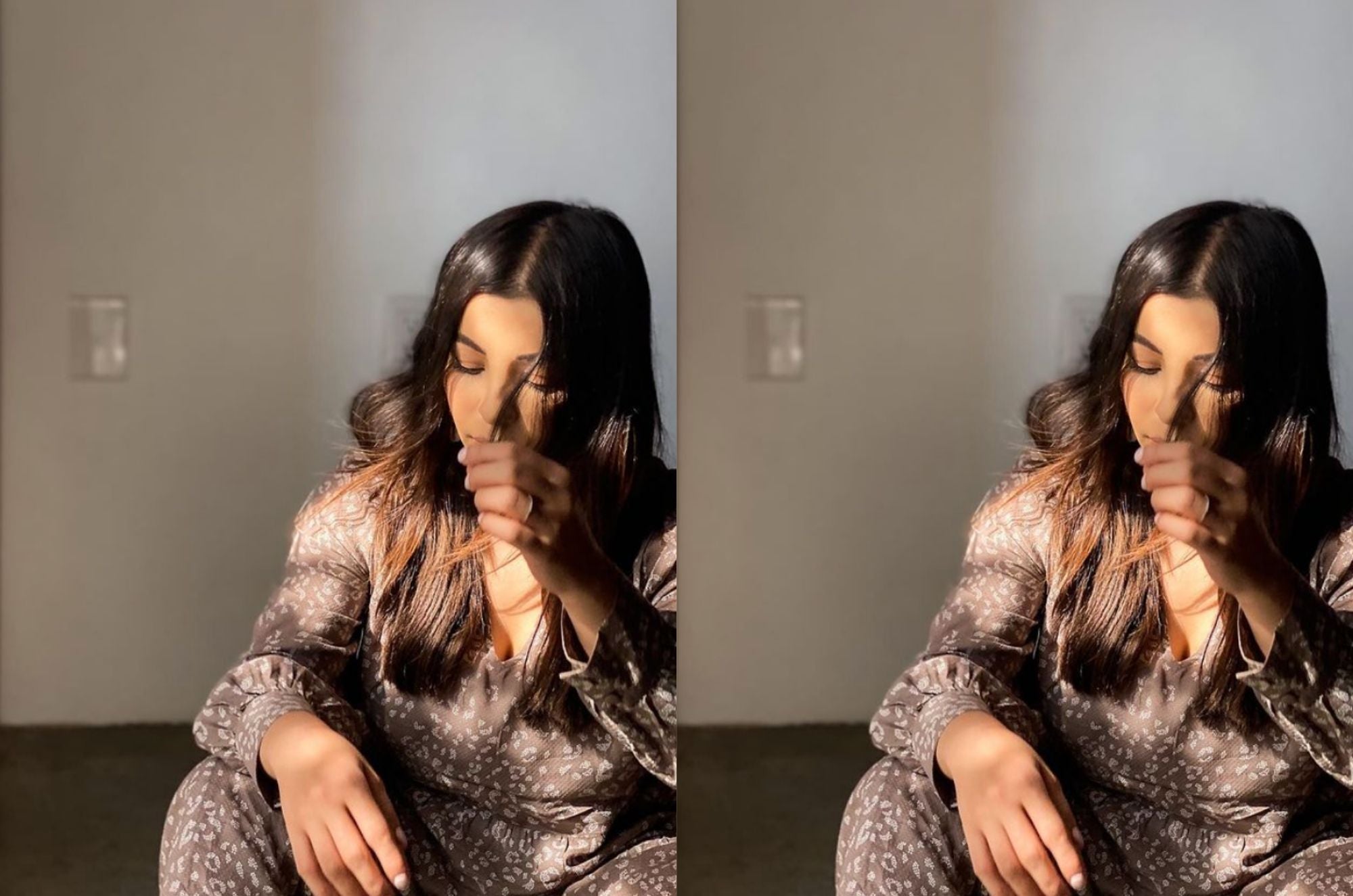
Are you scratching your head trying to figure out why it's so sore? Let's get to the root cause. Here are the top 5 reasons for your scalp pain.

Scalp sebum isn't all bad! Here is the low down on precisely what it is and why it essential for healthy hair growth.
